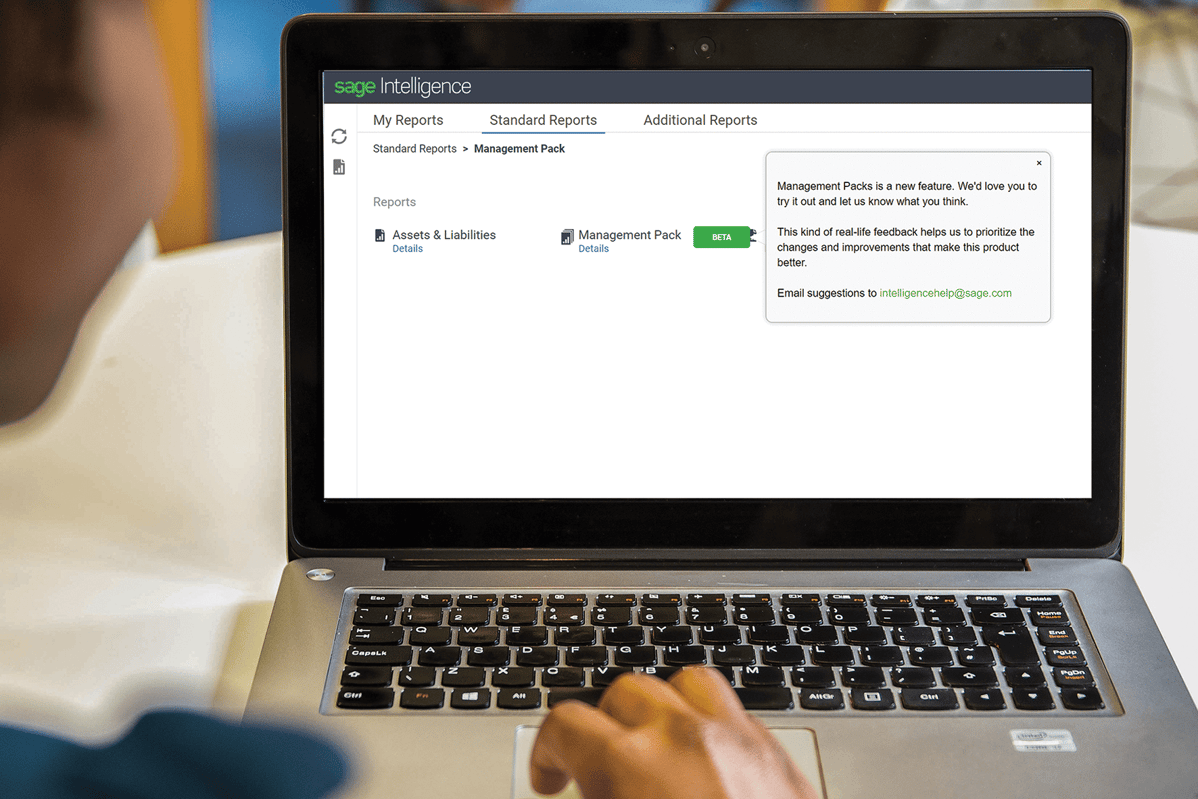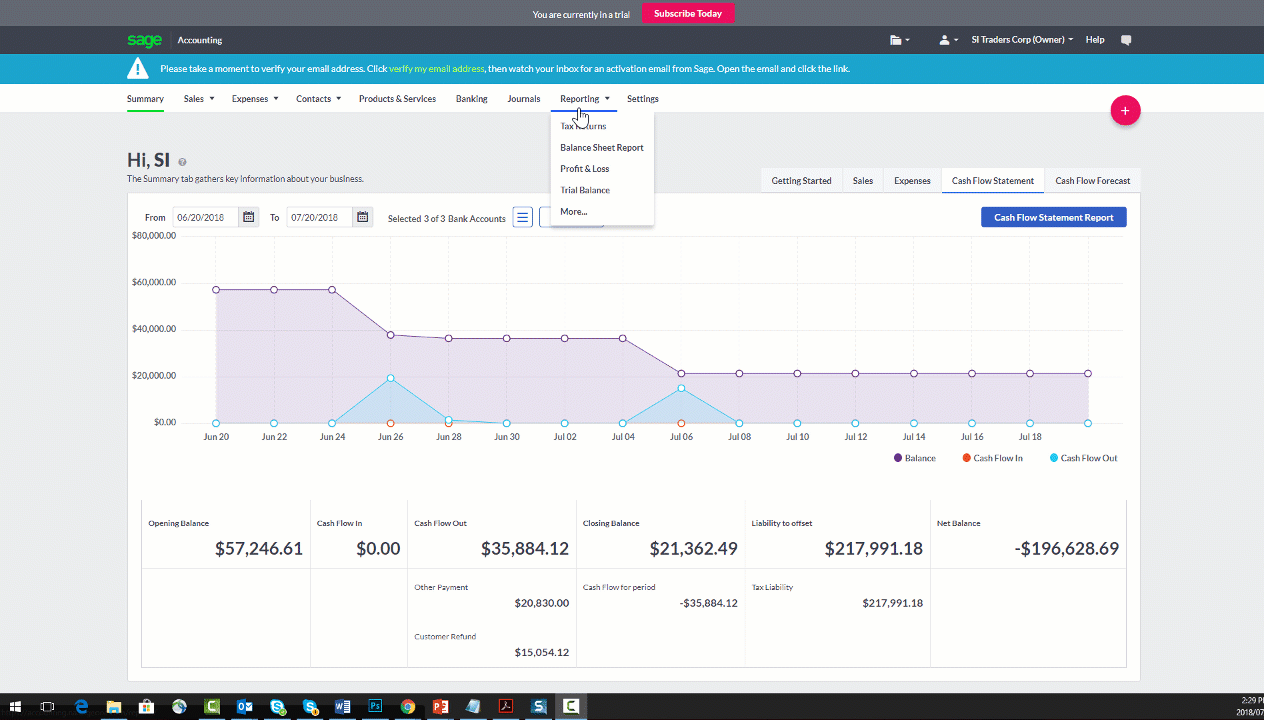
BUSINESS Intelligence Training
BAASS Business Solutions offers business owners and other users of the Sage Intelligence products learning courses. These courses will improve the overall knowledge and skills of Sage Intelligence and Excel users, empowering you to spend less time capturing data, and more time gathering insights in reports that are clear, relevant, and drive decisions.
Our current courses are:
Not the course you need for Sage Intelligence? Reach out to our BAASS BI Trainer to setup a custom training package.

Sage Intelligence Navigation
Ready to get started with Sage Intelligence (SI) Navigation?
This course will illustrate the Navigation to use Sage Intelligence reporting. After attending this course, you will be able to:
- Navigate through the Sage Intelligence interface
- Run pre-existing reports and customize them for your company
- Use the drill-down capability
- Understand security and setup options

Before attending this course, we recommend that you watch these introductory videos. This will provide you with a conceptual understanding of what Sage Intelligence can do.
Introduction to Sage Intelligence
- How to access Intelligence Reporting
- Use License Manager to assign and delete licenses
- Introduction to Report Manager
- Run a pre-existing report
- Edit a report
- Save a report template
- Export and import a report
- Distribute a report using BI Distribution Tool
- Use Report Viewer to run reports
- Use Security Manager to assign users to reports
Sage Intelligence - Report Designer
Focus on creating financial reports in Sage Intelligence Reporting using the Report Designer. You will learn how to use the Task Pane (previously called the Report Designer Add-In) features of the Report Designer.
After attending this course, you will be able to:
- Create and modify financial reports using the Task Pane of the Report Designer, which allows for full use of Microsoft Excel capabilities
- Change the financial reporting structure of a report using Reporting Trees
- Use “Exclude Zero Rows’ checkbox option and the Dynamic Account Ranges feature to detect any changes and automatically includes those changes
- Automatically distribute and post reports
- Consolidate the data in multiple company databases into a single financial report(1)
- Consolidated reporting is only applicable to customers with multiple databases and requires the Connector Module
Before attending this course, you should attend the Sage Intelligence Reporting: Navigation course.
Attending the Connector and Advanced courses prior to this course is beneficial, but not required.
- Review report design philosophy
- Menu Page
- Account and Account Group References
- Use Lists
- Apply Formulas for reporting purpose
- Create Reporting Trees
- Use Missing Accounts
- Use Dynamic Account Ranges to allow automatic reporting
- Review distribution process
Sage Intelligence - Connector
Are you ready to create your own Sage Intelligence reports? This virtual classroom course will lead you through basic report design with Sage Intelligence. In this course, you will learn to create your own reports and new data containers.
After attending this course, you will be able to:
- Understand the basic features of the Connector Module
- Create new data connections
- Define a new data container and explain the difference between each container
- Define new data expressions
- Use advanced data expressions in a data container

Before attending this course, you should attend the Sage Intelligence Reporting: Navigation course.
You should also have a good working knowledge of Excel, including pivot tables and formulas.
- Review Data Connections
- ODBC for SQL
- Sage Accpac (Auto Connect)
- Sage Accpac Consolidation
- Static Database
- Explore Data Expression
- Data Field
- SQL Expression
- Excel Formula
- Pass-Through Variables
- Difference between data container
- Table
- SQL Join
- View
- Graphical Join
- Stored Procedures
- SQL Query
- Other Tips and Tricks
- 1 container for multiples reports
- Switch Output mode
- System Variables
- Show Dependency
- Direct Query
- Backup
Interested in a Training Session?
Meet our Business Intelligence Expert

James Tang
James is a Senior Certified Consultant, Business Intelligence Practice Leader and a member of the management team at BAASS. James brings forth a high level of experience in Project Management, Business Analysis, and Technical Pre-sales. He holds a professional designation as a Chartered Professional Accountant (CPA, CGA) and is the IT Committee Chair of Toronto South CPA Ontario Association and Honours Bachelor of Commerce from the University of Toronto.

